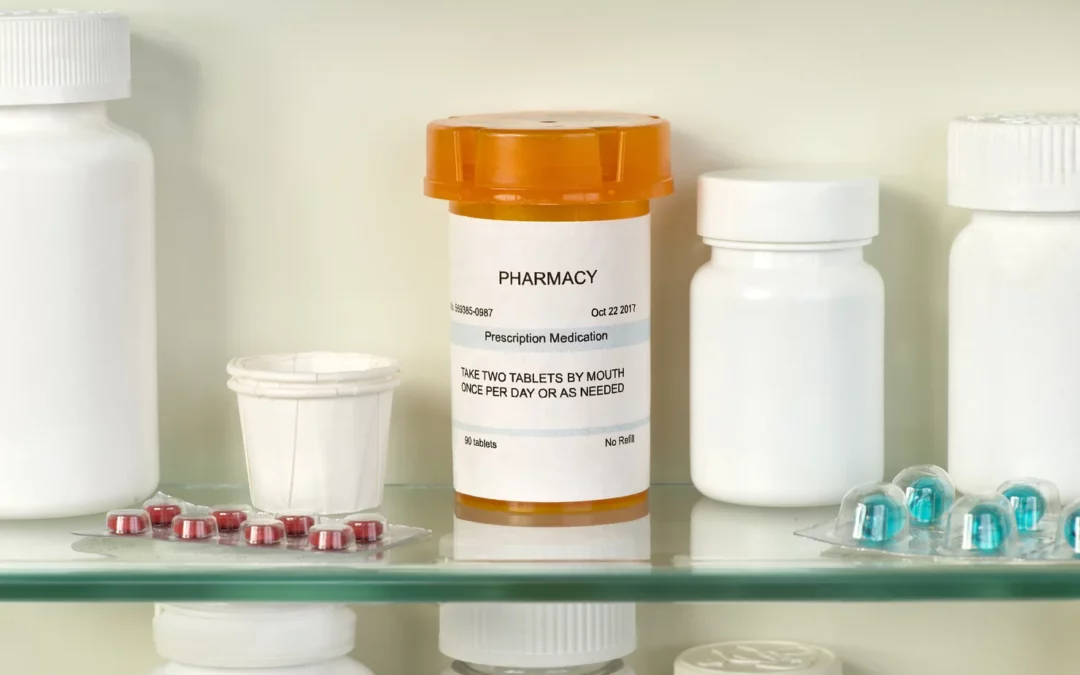The severe state of emergency facing our global community has resulted in many of us staying home in a united effort to stop the spread of COVID-19 (coronavirus). In preparation for this isolation period, we have stocked up on food, household supplies, and toilet paper, but how many of us have prepared reserves of necessary, life-sustaining medication to get through the pandemic?
Dr. David Merritt, PharmD, RPH, Chief Pharmacist for PCM, explains the importance of creating medication reserves in case of emergency, “It is vital to refill essential prescription medications for chronic conditions in the wake of COVID-19. Refill your medication for a full 30- or 90-day period if your insurance benefits allow. As with any natural disaster, COVID-19 could get worse before getting better, which would make getting prescriptions filled more difficult. It is time to get prepared.”
During social isolation, visiting the pharmacy may be challenging. Additionally, shortages on necessary medication, due to limited raw material or extensive treatment of the coronavirus outbreak may make it difficult to fill medications.
“As physicians work to treat patients with coronavirus, many common medications, including those used to treat chronic respiratory conditions like asthma and COPD may be in greater demand.” Dr. Merritt explains, “Acting now to create a small reserve of 30-90 days of your medication can help you be prepared in case of major shortages.”
Building a medication reserve is imperative. Cost is an obvious hurdle to those who are uninsured, but even people with insurance run into tight restrictions regarding refills. For example, a 30-day supply of medication typically cannot be refilled until 24 days after the original fill date. Insurers put these policies in place for the safety of the patient, so as not to have an excessive amount of medication at home. However, during this unique period, many insurers have relaxed refill policies. For example, Anthem is recommending that their members talk to their doctors to see if they can increase their 30-day supply to a 90-day supply or use mail-order services. Similarly, United Health Care is offering early refill options and delivery through Optum Home Delivery. Check with your insurance carrier to see if obtaining an earlier refill on your medication is possible.
If you do not have insurance coverage or if your coverage does not allow for increased supply, ask your pharmacist for the cash price of the medication. Some cash prices are actually cheaper than an insurance copay. Paying out-of-pocket may be an economical option for creating a 30- to 90-day supply.
Preparing a medication reserve does not mean stockpiling thousands of doses or hoarding boxes of over-the-counter treatment.
“Some medications are already in high-demand and during a crisis that demand increases,” Dr. Merritt explains, “You do not need a huge stockpile of drugs. A 90-day reserve supply is usually plenty. If you are unsure how much medication you should keep on hand, talk to your doctor. Hoarding too much means your neighbor or friend may not have access to the medication they need.”
How do you create an emergency medication reserve?
Start by creating a place in your house where you can easily grab your medications if needed. Make sure medications are stored away from direct sunlight and humidity and, most importantly, are out of reach of children. Then remember the acronym D-R-U-G:
D – Decide, with your doctor, on an appropriate amount of medication to have on hand and make a plan in case you run out of medication during an emergency.
R – Reach out to your insurance carrier to refill current medication or start mail-order services.
U – Utilize pharmacy cost-savings tools to minimize out-of-pocket costs.
G – Gather prescription and medication information including dosages, expiration dates, and your doctor/pharmacy contact information in one place.
S – Build a supply of an appropriate amount of medication for chronic conditions, as well as over-the-counter medication such as pain relievers, cold and allergy pills, and antacids.
Coronavirus has taxed global and local healthcare systems, economies, and industries. Most repercussions are outside of our control. However, we can take control of our health by preparing enough medication to stay healthy and safe. Reach out to your doctor, insurer, and pharmacy to ensure you and your family have the medication you need and start creating a responsible reserve.
Updated: Mar 4, 2021

